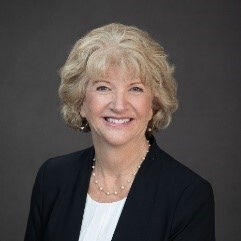FM Service Transformation
Adapting with an adaptive workspace

From webinars to white papers, blogs to books, there is an abundance of material on workplace transformation, especially in the wake disruptions created by the COVID-19 pandemic. The shift in perspectives on how and where work gets done and how organizational leaders are (or are not) adapting work models have dominated discourse on the workplace of the future; but what about those responsible for meeting the evolving needs and demands of the transformed workplace? If work models change, won’t FM services delivery models change, too?
Providing critical services, facility managers were key to the success of building operations globally during the pandemic. Many organizations realized, some for the first time, the clear benefit of including FM insights and expertise in discussions on workplace safety and strategy. With FM’s guidance on adjustments to air exchange rates, cleaning frequency, lighting schedules, food services and countless other operational areas, FM services have become a more common discussion item in today’s C-Suite.
As organizations continue to navigate the latest transformative concepts and opinions – searching for the best ways to operate their business, ascertaining what future occupancies will be, and weighing the costs and potential benefits of new amenities, technologies and services – they are relying on input from FM teams who are also in the process of evaluating and plotting a course forward.
While FM services will continue to ensure a safe, healthy, supportive physical workplace, it will also expand to include ways of attracting and retaining talent, creating an experience for all users, enhanced by smart technology. New workplace expectations require new service mindsets, methods and models.
|
The Global Workforce Initiative addresses the triple bottom line of economy, equity and environment. Meeting this demand is critical to the energy efficiency of the built environment, reducing greenhouse gas emissions, increasing economic productivity of these buildings, and providing education and employment opportunities in the facility management profession. GWI programs are offered through the IFMA Foundation’s:
Students enrolled in GWI programs can participate in scholarship programs, internships, job shadowing and its signature student competition, IgniteFM! The Student Challenge.
The GWI:
|
People
Amid the Great Resignation, it is critical to improve talent attraction and retention at all levels of the organization. Post-pandemic, many organizations have followed the trend of amenity improvements to entice people back to the office. Although amenities can help draw new talent and incentivize current staff to stay, personalized attention and individual health and well-being have risen in importance.
Creating a human-centric culture that nurtures and recognizes employees generally increases satisfaction and results in longevity within the firm. While FM teams must often prioritize tasks over human-centered projects, they must take an interest and factor in the emotional health and needs of each employee. This may be simply taking time to listen, allowing the employee to give their opinion and feedback. This helps the individual feel like a part of the team, filling the human need to belong and feel valued.
Human-centered activities can include recognition (public or private), showing appreciation for a job well done. An employee who believes in the corporate brand and is proud to be part of the organization will set great store by acknowledgement of their contributions and worth to the team.
Focusing on people has historically been a basic management skill; however, today’s workforce expects more. They are responding to genuine gestures of attentiveness, gratitude and approval with elevated dedication to the organization and higher motivation to excel. Showing employees that they are heard, seen and valued will help the corporate culture flourish in an ever-changing workplace.
Experience
As the workplace evolves, FM teams must focus on, and integrate, occupant experience. This is another shift in how FM services have historically been provided. Regardless of one’s role, everyone on the FM team has a responsibility to create a positive customer experience.
Sustainable operations and safety have always been, and will continue to be, foundational to FM services. However, these FM services must take place with hospitality in mind, creating an improved experience for the user when interacting with the FM team.
FM was generally considered a back-of-house service, in which work was intentionally done at times or in areas where the FM team would not be seen. Now, it is beneficial for services to be taken care of in full view of occupants, exhibiting the care given at a facility to ensure it is a safe and healthy place to be.
A good example would be cleaning functions. Pre-pandemic, the bulk of cleaning was done by the night shift, supported by a small day staff, so the work was rarely seen. Now, many cleaning tasks are scheduled for daytime working hours, which allows occupants to observe the level of work being done.
Technology
With a transition to dynamic, hybrid workplaces, smart building technology and complex system integration are rapidly evolving to address the real-time needs of the workplace. These advancements – including analytics, wayfinding/display signage, improved reservation systems, robotics – will help measure and manage the influx of occupants, as well as their expectations for a safe, modern facility.
Building system advancements will require augmented FM skills to manage the technology integrated into the digital workplace. Upskilling to understand comparative analytics shown within a system or understanding the intricacies of a more advanced building management system will grow in demand as technology evolves, giving FM and engineering teams additional opportunities for advancement.
Talent gap
The yin and yang of rapid, rampant change creates opportunity and challenge. Just as facility management gains a foothold in its influence and impact on the future built environment, the industry also faces a growing talent gap, with more than half of today’s FM practitioners expected to retire in the next five to 15 years. Programs such as the IFMA Foundation’s Global Workforce Initiative (GWI) and partnerships between educators, community organizations, government agencies and multinational companies are crucial to engaging students, young professionals, and displaced or transitioning workers, and creating a clear career pathway to an exciting and fulfilling career in FM.
FM professionals can join the effort to fill the industry’s growing workforce gap by applying the same service delivery model – people, experience and technology – to those with a curiosity about, or potential for, a career in FM. It is to the industry’s benefit to ensure not only its adaptability, but its longevity, within the future workplace.



for working with clients and prospects regarding corporate real estate objectives including cost reduction, diverse talent improvement, increased service integration driving client occupant productivity and ability to drive consistent real estate delivery locally and globally. She is long-time member of IFMA and serves as Chair of the IFMA Foundation Board of Trustees, the IFMA Foundation Executive Advisor & Chair of Global Workplace Initiative programs, and Past President of the IFMA San Fernando Valley Chapter. In 2021 she received the GlobeSt. Elite Women of Influence Humanitarian Award.
Read more on Operations & Maintenance or related topics IFMA Foundation , Facility Technology , Workforce Development and Occupant Services
Explore All FMJ Topics








